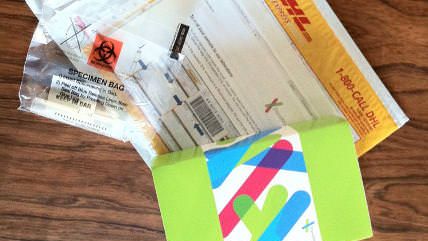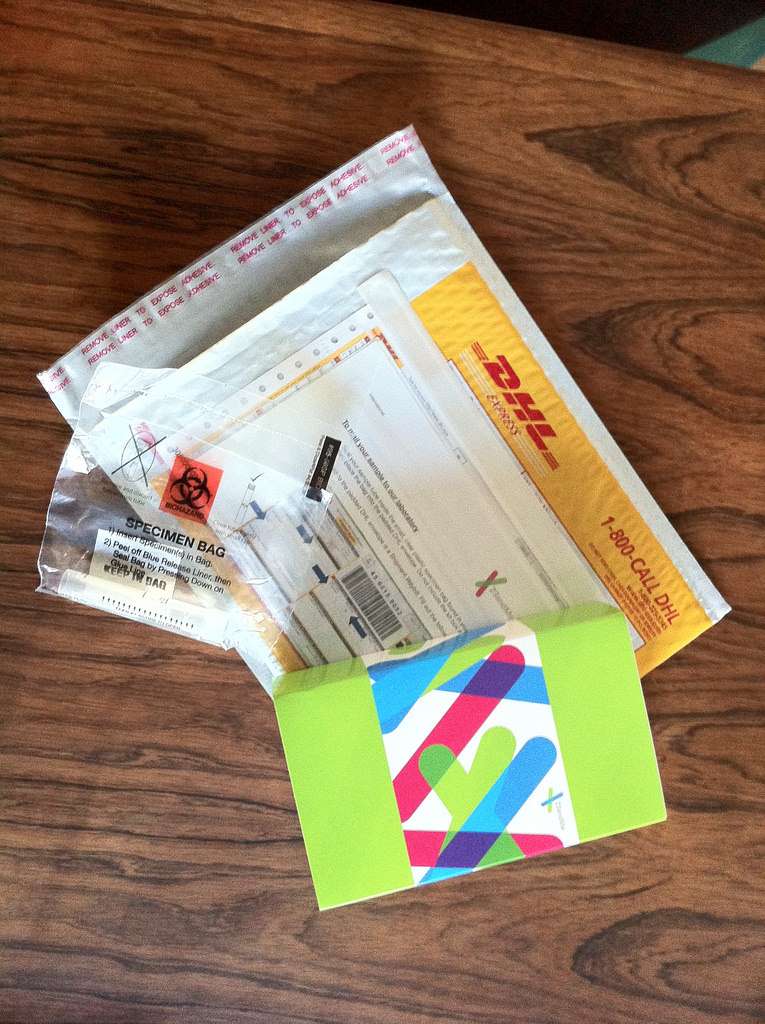23andMe's Anne Wojcicki Says FDA Order Seriously 'Slowed Up' Gene Test Sales


The U.S. Food and Drug Administration (FDA) has succeeded in stifling sales for innovative genetic testing company 23andMe. "It has slowed up the number of people signing up," 23andMe co-founder Anne Wojcicki said during a speech at music/tech/everything festival South by Southwest (SXSW) on Sunday.
In late 2013, the FDA sent 23andMe a letter ordering it to "immediately discontinue marketing" of its home genetic tests or face "seizure, injunction, and civil money penalties."
The public largely supports direct-to-consumer sales of gene screening tests, which for as little as $99 can reveal information such as ancestry and the presence of hereditary diseases and conditions. But the FDA worried that consumers may make unwise medical decisions based on their results. The FDA wants to stop consumers from accessing important health information for their own good, see?
Meanwhile, in foreign countries, scholars and government agencies are going ahead and partnering with 23andMe to continue moving medicine into the 21st century. At the SXSW panel, Wojcicki said 23andMe now has 650,000 people in its database and is "being inundated with requests from academics and foreign partners."
Genetics is going to become extremely cheap and part of our daily life, she said. In China, the Beijing Genome Institute is now the largest genome testing firm in the world, and Saudi Arabia, the UK and others are all strong in this area.
Wojcicki also talked about how genetic screening can be used to reduce health care costs and shift focus from disease treatment to prevention. This, however, makes it unpopular with both pharmaceutical companies and their buddies in the FDA, who have more motive to make sick people better than to keep well people from getting sick. Wojcicki said she was told by one doctor that, "the problem with 23andMe is that you generate non-billable information."
Non-billable, private information—23andMe allows consumers to access their genetic info without a physician, insurance company, or government middleman (which is probably another strike against it in the FDA's eyes). "Everyone has the right to their genetic information and to use it," said Wojcicki. For now, however, 23andMe doesn't have the right to tell you how to get that information.
Editor's Note: As of February 29, 2024, commenting privileges on reason.com posts are limited to Reason Plus subscribers. Past commenters are grandfathered in for a temporary period. Subscribe here to preserve your ability to comment. Your Reason Plus subscription also gives you an ad-free version of reason.com, along with full access to the digital edition and archives of Reason magazine. We request that comments be civil and on-topic. We do not moderate or assume any responsibility for comments, which are owned by the readers who post them. Comments do not represent the views of reason.com or Reason Foundation. We reserve the right to delete any comment and ban commenters for any reason at any time. Comments may only be edited within 5 minutes of posting. Report abuses.
Please to post comments


As someone who spent a combined ~7 months working at a pharmaceutical manufacturing plant, I won't believe the FDA would slow anything down. That'd be like believing a Reason contributor would post an article without alt-text.
post an article without alt-text
The horror. The...horror...
Like Wesley Mouch trying to make the economy stand still so he could regulate it.
It's stuff like this that gives me hope, actually. Young people are used to innovation and change. To having everything customized to their liking. They support big government in some abstract way. But when an innovation like what 23andMe offers is denied by some huge inert beauracracy like the FDA...or Obamacare orders a certain type of coverage....maybe, just maybe, there will be enough of them to say....wait a minute...this needs to change.
maybe, just maybe, there will be enough of them to say....wait a minute...this needs to change
At most, they will say that their hobby horse deserves an exception, which will spawn a slug of rulemaking, the expansion of the agency to accomodate the work required by the new rules, and the further entrenchment of the Total State.
You've snuffed my hope, because you are right of course. See: e-cigarettes. Every article I've seen makes much of the fact that vaping is unregulated (!). The idea that a thing can just exist without some sort of government oversight and rulemaking is just unthinkable.
Fuck the FDA. I ordered a kit right after they sent their nastygram to 23andMe, hoping I'd get in before the doors closed.
FDA makes them pull the health diagnostics retroactively from anyone who ordered on that day or after. Now I'm stuck trying to figure out who to bribe to get my order date moved up a week in their database.
I hope everyone involved in that decision dies of horrible hereditary diseases which they could have detected (and treated in time) with that kit.